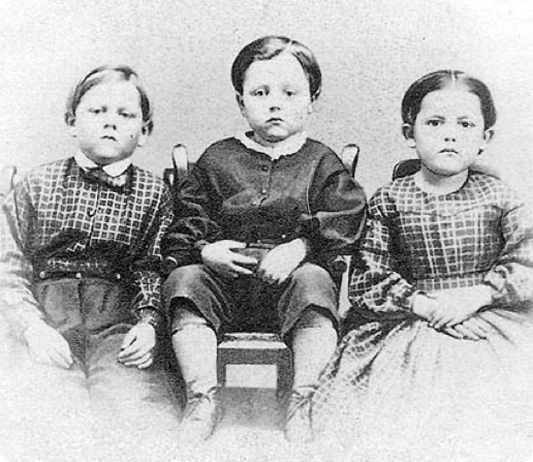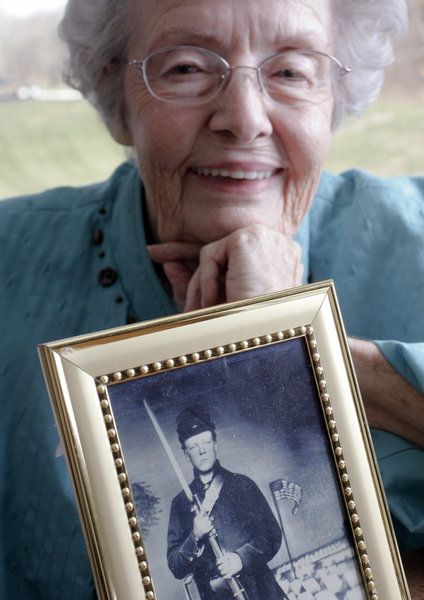The Atlantic published an excerpt from A Rebel’s Recollections that provides an interesting, rambling take on the Upper South’s (specifically Virginia’s, in this case) reasons for entering the war. In summary, the writer suggests they were bullied into it by the planter states, with some propaganda and misinformation thrown in for emphasis.
Why, then, the reader doubtless asks, if this was the temper of the Virginians, did Virginia secede after all? I answer, because circumstances ultimately so placed the Virginians that they could not, without cowardice and dishonor, do otherwise; and the Virginians are brave men and honorable ones. They believed, as I have said, in the abstract right of any State to secede at will. Indeed, this right was to them as wholly unquestioned and unquestionable as is the right of the States to establish free schools, or to do any other thing pertaining to local self-government. The question of the correctness or incorrectness of the doctrine is not now to the purpose. The Virginians, almost without an exception, believed and had always believed it absolutely, and believing it, they held of necessity that the general government had no right, legal or moral, to coerce a seceding State; and so, when the President called upon Virginia for her quota of troops with which to compel the return of the seceding States, she could not possibly obey without doing that which her people believed to be an outrage upon the rights of sister commonwealths, for which, as they held, there was no warrant in law or equity.
She heartily condemned the secession of South Carolina and the rest as unnecessary, ill-advised, and dangerous; but their secession did not concern her except as a looker-on, and she had not only refused to be a partaker in it, but had also felt a good deal of indignation against the men who were thus endangering the peace of the land. When she was called upon to assist in reducing these States to submission, however, she could no longer remain a spectator. She must furnish the troops, and so assist in doing that which she believed to be utterly wrong, or she must herself withdraw from the Union. The question was thus narrowed down to this: Should Virginia seek safety in dishonor, or should she meet destruction in doing that which she believed to be right? Such a question was not long to be debated. Two days after the proclamation was published Virginia seceded, not because she wanted to secede, – not because she believed it wise, – but because, as she understood the matter, the only other course open to her would have been cowardly and dishonorable.
I have always taken issue with the Southern Cause (capital C) – it’s difficult, as a modern-day moderate, to understand why anyone could offer themselves up to “die of a theory” (stealing a quote from Jefferson Davis). This bitter paragraph, and that brutal last line, is an excellent summation of my own thoughts:
With all its horrors and in spite of the wretchedness it has wrought, this war of ours, in some of its aspects at least, begins to look like a very ridiculous affair, now that we are getting too far away from it to hear the rattle of the musketry; and I have a mind, in this chapter, to review one of its most ridiculous phases, to wit, its beginning. We all remember Mr. Webster’s pithy putting of the case with regard to our forefathers of a hundred years ago: “They went to war against a preamble. They fought seven years against a declaration. They poured out their treasures and their blood like water, in a contest in opposition to an assertion.” Now it seems to me that something very much like this might be said of the Southerners, and particularly of the Virginians, without whose pluck and pith there could have been no war at all worth writing or talking about. They made war upon a catch-word, and fought until they were hopelessly ruined for the sake of an abstraction.
via A Rebel’s Recollections (Part 1) – George Cary Eggleston – The Atlantic.

 On October 19th, I mentioned the anniversary of Whose Father Was He?, the Philadelphia Inquirer’s story about Amos Humiston, whose body was found on the Gettysburg body clutching a photo of his children. Today is the anniversary of Mrs. Humiston’s response to the Inquirer, and for those interested in reading more about the tragedy of Amos Humiston and his children, I present the five-part history written by documentary filmmaker Errol Morris for the New York Times:
On October 19th, I mentioned the anniversary of Whose Father Was He?, the Philadelphia Inquirer’s story about Amos Humiston, whose body was found on the Gettysburg body clutching a photo of his children. Today is the anniversary of Mrs. Humiston’s response to the Inquirer, and for those interested in reading more about the tragedy of Amos Humiston and his children, I present the five-part history written by documentary filmmaker Errol Morris for the New York Times:
